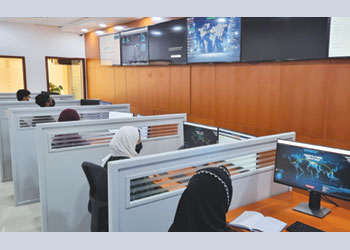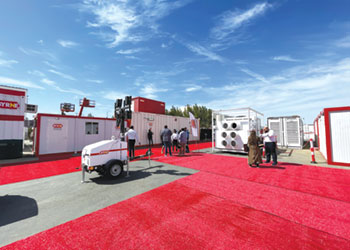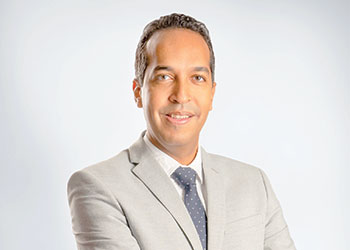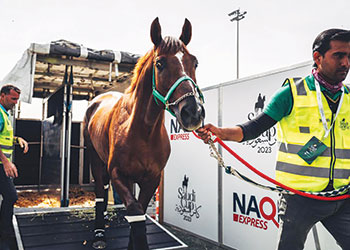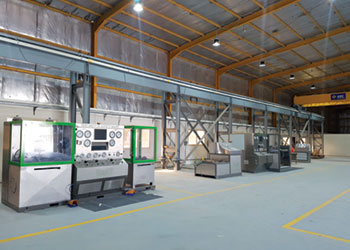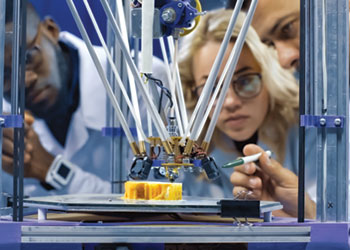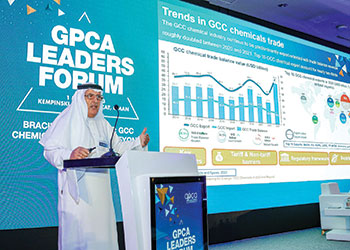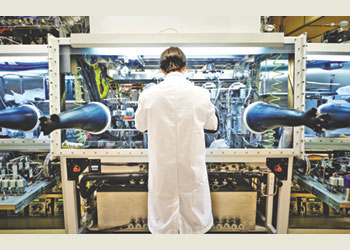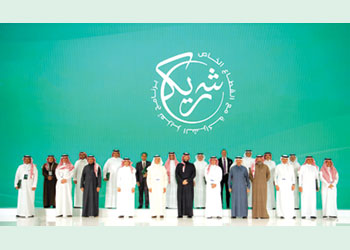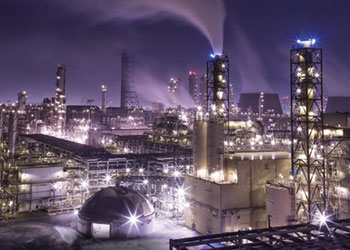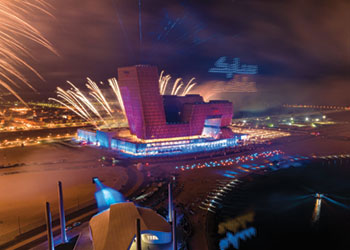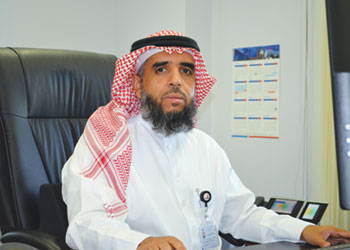
 Al-Khaldi ... visionary leadership
Al-Khaldi ... visionary leadership
In line with Vision 2030, Olayan Descon is planning to forge alliances with OEMs and process engineering companies to manufacture certain technology-intensive products locally, Abdulhadi Fahad Al-Khaldi, General Manager of the company, tells OGN
Olayan Descon (OD), an integrated engineering and industrial services company, is playing an instrumental role in developing local manufacturing in the oil and gas and other industries in the Kingdom of Saudi Arabia through strategic tie-ups with global companies.
This will lead the company to not only expand its material resources but also develop its human resources, with particular focus on the national cadres.
When it comes to manufacturing, OD is a benchmark in itself, having supplied locally fabricated process equipment to all major projects in the.
In an exclusive interview with Abdulhadi Fahad Al-Khaldi, General Manager of Olayan Descon, OGN energy magazine learnt about the company’s near-term strategy for expansion of products and services, projects underway, and key manufacturing challenges the industry faces.
What manufacturing facilities does Olayan Descon have in the Kingdom?
Olayan Descon (OD) currently operates two state-of-the-art manufacturing facilities in the Kingdom for the supply of all kinds of process equipment. Our Jubail facility has been servicing Aramco, SABIC and their affiliates along with other end users in petrochemicals, fertilisers, power, water and mining sectors since inception. This facility is approved by Aramco’s 9COM to handle heavy wall pressure vessels of unlimited thickness.
The second facility is strategically located in Yanbu to serve end users in the western region. Looking at the future oil and gas and petrochemicals projects in the Kingdom, we are gradually increasing the capacities and are expected to double in the next two to three years.
How has local manufacturing by companies, such as OD, helped the Kingdom reduce dependence on imports?
Over a decade ago, most of the process equipment was imported. However, after the implementation of the IKTVA and local content programme, local companies like OD developed capabilities to produce equipment in the Kingdom. This drastically reduced the import of process equipment to the country. Currently, most heavy equipment is manufactured at local facilities, which is in line with the Kingdom’s Vision 2030 initiative.
How is OD planning to contribute to the Saudi economy through manufacturing?
 |
Manufactured for and delivered to Aramco by OD |
OD has been consistently supporting all major projects in the Kingdom by supplying locally fabricated process equipment. In line with Vision 2030 and reinforcing the ‘Made in Saudi’ goods initiative, we are also planning to forge alliances with OEMs and process engineering companies to manufacture certain technology-intensive products locally.
Furthermore, we also plan to induct more national workforce across various departments and develop a comprehensive framework to include more Saudi Vendors and service providers to increase the local content factor in every project.
What emerging technologies is OD introducing into the Kingdom?
Earlier this year, we signed a few MoUs with foreign companies that have specialised technology or services. Of late, we are in discussion with a foreign firm, which specialises in chemical Decon works. Similarly, we are in discussion with another international company for VRU packages and terminal automation systems. These are in the early stages, and we hope to add a few more by the yearend.
What are your notable products or projects in the region?
OD has significant orders and long form contracts with Aramco, Schem, SABIC and their affiliates. We also cater to the non-oil and gas industries predominantly in power and desalination, where we are working closely with Marafic, SEC, SWCC and other clients. We have always been a frontrunner for the major turnaround and shutdown (TA and SD) works for upstream, downstream, and petrochemical plants.
Currently, we are executing two major TA packages for Samref wherein we will be mobilising more than 1,200 people for the next couple of months to complete the shutdown works.
 |
OD’s office building in Saudi Arabia |
We recently completed major TA services for the Riyad Refinery, Sasref, Maaden, Hadeed Yasref and Yanpet.
On the manufacturing side, we are well recognised as a heavy equipment manufacturer. We have associations with all major EPC contractors that are active in the region.
We are also a coveted supplier for manufacturing of shell and tube (S&T) heat exchangers in the Kingdom. Overall, more than 200 process equipment are under fabrication for various clients for local projects.
Moreover, we have developed and implemented a three-year business strategy which was approved by the company’s board of directors. Accordingly, we have identified a few areas of expansion for our products and services. We are looking to bring more value-added products and services to the market.
What In-Kingdom Total Value Add (IKTVA) goals has OD achieved thus far?
IKTVA is in the forefront while setting company policies and several initiatives undertaken by OD amply demonstrates our commitment in this regard.
We encourage local talent and have created a structured career roadmap for national employees. We also recruit fresh graduates from universities, put them through comprehensive on-the-job training programmes and then deploy them across various functions within the company. OD has trained and employed nationals in various disciplines, such as engineering, support staff and other trade skills.
Similarly, we work closely with local establishments, SMEs, Aramco and other relevant government bodies to promote local content in the Kingdom. We have constantly preferred local suppliers and service providers for our procurement needs over the last few years.
How is operational efficiency managed at OD?
We have a well-established integrated management system (IMS) under which departmental procedures are in place for effective working and continual improvement process. Further KPIs are defined and monitored on a regular basis for reducing waste in time and efforts and improving productivity. The enterprise resource management (ERM) is another important tool utilised to identify and mitigate risk associated with each project. This helps in efficiently managing the project requirements.
What are the top five manufacturing challenges in your industry and their potential solutions?
We see business returning to normal after the Covid-19 pandemic, while manufacturing is picking steadily. Since major raw materials for manufacturing in the country are imported, the rising cost of production in Europe, lifting export subsidies in China, higher logistics costs still pose challenges to effectively manage the supply chain. Globally, most of the oil and gas companies are focusing on renewables/alternative energies, which in long run will decrease the demand for fossil fuel. We are also preparing for this shift by identifying the new segments, which can be added to our portfolio.
What is your total workforce strength and how do you develop their capabilities?
We have a permanent workforce of 1,800 people in the Kingdom. But our strength varies depending on the project/shutdown cycle. We can also add 2,000-3,000 temporary manpower.
We have set training programmes to upgrade the skill levels of employees. With this objective, we have now established an HSE and Technical Training Centre at our Jubail facility to upskill the knowledge of workforce. Job rotation is another technique adapted by us to enhancing career and improving the individual’s capabilities.
How does OD address social issues?
OD believes in creating value for the community and all the stakeholders. In this regard we regularly come up with different CSR plans. We actively take part in charity programmes organised by the authorities by the local governates in the Eastern Province.
For years we have been collaborating with technical institutes for providing young diploma graduates with on-the-job training and hiring them as employees.
Apart from this we also organise blood donation camps in cooperation with the local hospitals.
By Abdulaziz Khattak







































































